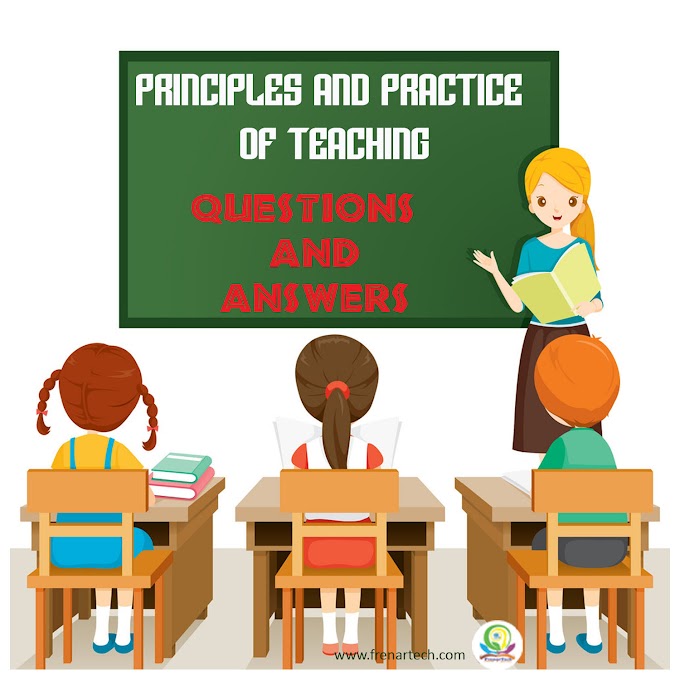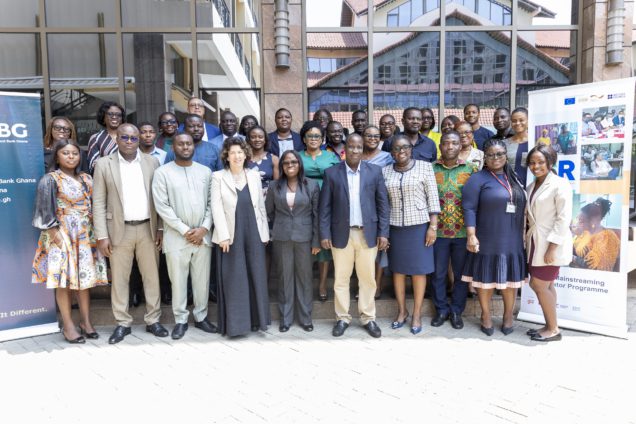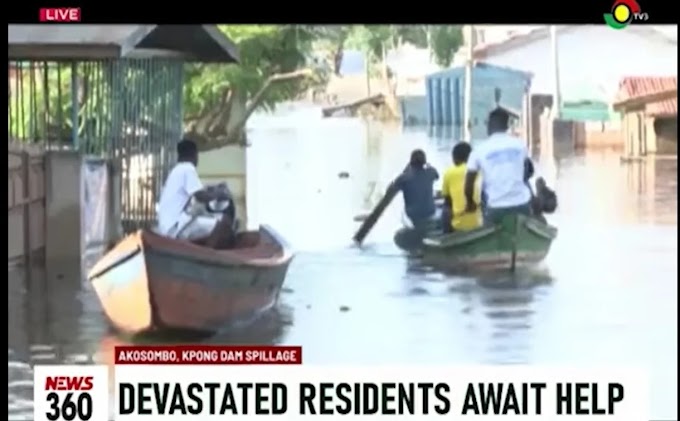According to Rockson-Nelson Dafeamkpor, a member of parliament for South Dayi, President Nana Addo Dankwa Akufo-Addo may only declare a state of emergency in response to the flood tragedy brought on by the overflow of the Akosombo Dam with the advise of the Council of State.
He stated that it is the Council of State's duty to call a meeting, assess the situation, and provide the president with pertinent advice.
According to Mr. Dafeamekpor, if a state of emergency is declared, the president will have the authority to send the army to the flood-affected areas of the Volta Region in order to deal with the crisis.
He continued that if the army is sent out when no state of emergency has been declared, the president would face questions from the legislature and the Council of State must move quickly.
The Council of State genuinely bears the burden under Section 31(1) of the Constitution. That decision must be made by the Council of State, which must meet. It states that the president may follow the council's recommendations. The Council of State is required to start the fire. They should gather, make that decision, and deliver the resolution to [the President] once [the President] informs them that [he] is in a crisis. Then, he might take action in accordance with it based on the resolution that would be the suggestion.
"A state of emergency has the advantage of allowing the president to send thousands of soldiers to the grounds to work and 64 engineers to construct new roads.
"Parliament will question you if you don't declare, thus the army cannot be used in this situation. He said on the Key Points on TV3 on Saturday, October 21, "The state of emergency must be established because there are benefits to the country when we do so.
Members of the State Council
Ransford Gyampo, a lecturer at the University of Ghana, added: "If declaring a state of emergency will not cost us money, but rather attract us money, let there be a swift action to declare so that we can benefit from all the interventions to alleviate the plight of the people."
If the IMF's conditions do not prohibit it, then by all means, let's declare it, he emphasized.
Andy Kwame Appiah-Kubi, a member of parliament representing Asante-Akim North Constituency, added, "I support it, the call is very welcomed, and I want to believe that the president is considering this."
The president was earlier instructed to proclaim a state of emergency in the flood-affected areas by former president John Dramani Mahama.
The extent and size of the flooding in the settlements around the Volta River, according to Mr. Mahama, was greater than "our crippled economy can bear."
He posted on Facebook, "I suggest to Government to declare a State of Emergency in the impacted areas and request prompt relief assistance from our bilateral and multilateral partners.
Alex Segbefia, a former minister of health, also requested that the president proclaim a state of emergency. He believed that the declaration of a state of emergency would not result in any disruptions.
On the Big Issue on TV3 on Wednesday, October 18, he asked the government to get ready in case a health emergency occurred. "I don't think there is any harm to declare a state of emergency," he added.
The requests for a state of emergency were also supported by the Ghana National Association of Teachers (GNAT). According to GNAT, the emergency declaration will guarantee public security and the upkeep of law and order.
The flood has badly affected a number of communities in the North Tongu Constituency, including Mepe and Battor.
The Volta River Authority (VRA) anticipates that spilling from the Akosombo dam would continue until the lake's overflowing inflows subside.
In a statement released on Tuesday, October 17, GNAT stated that it "equally supports the calls for a state of emergency to be declared in the affected areas, since the conditions under which a state of emergency could be declared, whether related to natural or man-made disasters, are currently being experienced, endangering not only the lives of the people but also depriving the communities of necessities of life. The emergency declaration would ensure public safety, maintain public order, and create the supply of necessary commodities and services that the communities require.
"We ask our teachers in the area to maintain their composure and calm, and we assure them of our unwavering support so they can perform their duties once the storm has passed," the statement continued. We would ensure that the dedication of our students is not impeded or disrupted for whatever reason, so they are not left out.
Likewise, the declaration was demanded by the Assemblies of God Church.
The Church thought that this would make it easier to deal with the "depressing" circumstances.
The General Overseer of the Assemblies of God Church, Rev. Stephen Wengam, said in a press conference on Tuesday, October 17, that "The Assemblies of God Ghana fully backs calls for the declaration of a state of emergency in the flood-affected areas, as this will help the necessary humanitarian measures being undertaken to bring the depressing situation under control."
He further pleaded with all Ghanaians to assist the administration in regaining control of the situation.
"The sad truth is that the unimaginable calamity has placed a tremendous strain on the government and government agencies to provide relief and hope to the people. Therefore, now is the time for Ghanaians from all social classes, economic levels, political persuasions, and ethnic backgrounds to come together and support the suffering parents, mothers, and kids.
"Corporate Ghana and other charitable organizations must align themselves with humanitarian endeavors, and counselors and psychologists must also give it their all."
The Ghana Medical Association (GMA) issued a cholera epidemic alert in the wake of the flooding.
The 13-member inter-ministerial group that has been established to evaluate the flood situation is to include the Ministry of Health as part of that effort, according to the GMA.
Acting GMA General Secretary Dr. Richard Selormey stated, "In our view as the GMA, in such an emergency, there is a big component that the health sector plays in the relief efforts," on the Ghana Tonight broadcast on TV3 on Monday, October 16.
There is a high risk for waterborne diseases, for various injuries due to floating objects, the outbreak of some conditions as cholera, typhoid, and even malaria because there is a pooling of water everywhere. "If you take this flooding for example, people have lost their livelihoods, people have been displaced from their homes, many don't have access to basic amenities that they had before.
"There is a significant issue with continuity of treatment since individuals who previously had access to medical facilities have been isolated. We are aware that the floods have blocked off access to around three health centers. This, in our opinion, provides persuasive evidence that the Ministry—rather than the Minister in particular—has a significant role to play in these initiatives. It is crucial that the Health Ministry be represented on this interministerial group.
To deal with concerns related to the flood, the government established the 13-member interministerial committee, which is presided over by the Chief of Staff.
Ministers of national security, interior, defense, energy, finance, local administration, works and housing, roads and highways, environment, sanitation, lands and natural resources, and information make up the group.
According to a statement made by Kojo Joopong Nkrumah, the information minister, the committee was established at the president's request on Friday, October 13.




















.jpeg)
